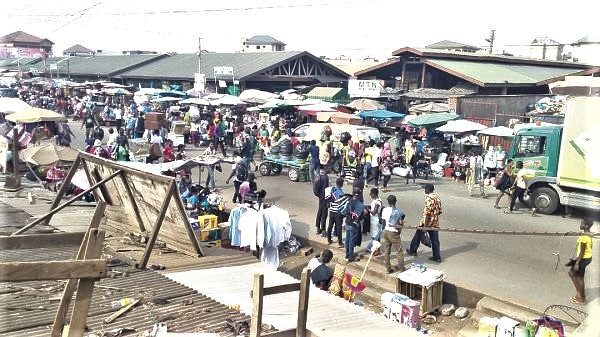
Ashaiman: 10 years after attaining municipal status
On February 29, 2008, the government under the leadership of President J. A. Kufuor carved out Ashaiman Municipal Assembly from the Tema Metropolitan Assembly (TMA) under the Legislative Instrument LI 1881 and Local Government Act of 1993 (Act 462) with a view to bringing governance to the doorsteps of the people and accelerate development of the area.
Ashaiman is a heterogeneous community with an estimated population of 300,000 people with a growth rate of 4.6 per cent which is higher than the national growth rate of 2.6 per cent.
Over time, the city has increasingly become the recipient of a large number of migrants from all over Ghana and some West African countries.
Due to the influx of people from the West African subregion, many refer to the community as the “United States of West Africa”
Mpoase
Initially known as Mpoase.
Ashaiman was founded in the 17th century by the late Nii Tetteh Amui I, a native of Tema.
He was a fisherman who settled in the area to carry out farming activities due to low catches.
According to the Regent of Ashaiman, Nii Annang Adzor, Nii Tetteh Amui I had a friend named Doku Ashai who would normally travel from Tema to Dodowa to trade.
On one occasion when Nii Ashai was heading towards Saasabi enroute to Dodowa, he met Nii Amui I who offered him a piece of land to settle.
Nii Adzor said in the course of time, the town became a meeting place for traders who were moving between Tema and Dodowa to trade and became known as Ashaiman, translated as ‘Ashai’s town.’
Negatives
Like any inner city in Ghana, Ashaiman is one of the economically viable and vibrant communities but comes with some negatives.
However, the city has over a period had to bear the tag as the citadel of all sorts of crime, filth and other violent practices.
This has impacted negatively on the development of the area to the extent that some people shy away from being considered residents of the area.
Indeed at a point in time, Ashaiman was considered among the five high-risk areas in the Greater Accra Region that suffer crime and lawlessness.
Thankfully, due to the hard work of successive MCEs and heads of the security agencies, the narratives about Ashaiman is changing and the town is rubbing shoulders with other cities in Ghana as far as development and economic activities are concerned.
10th anniversary
At the launch of the 10th anniversary celebration of the creation of the Ashaiman Municipal Assembly (ASHMA), the Municipal Chief Executive, Mr Albert Boakye Okyere, said the municipality had seen tremendous transformation since its establishment.
“When I took office as the MCE of Ashaiman, the expectation of the people was to see a change in transforming the various communities,” Mr Okyere, who incidentally was the first MCE for the area when it was created recalled.
On the theme: ‘The new Ashaiman, 10 years of transformation,’ Mr Okyere noted that Ashaiman was at the threshold of unlocking the hidden potential through creativity to spearhead monumental but sustainable growth and development.
Ashaiman transformation
Indeed Ashaiman is changing.
A first-time visitor to the town will notice a plethora of banks, non-banking institutions, as well as other businesses scrambling for any available land space to either set up new businesses or open new branches.
The MCE said the development had made land one of the expensive economic commodities in the area.
Mr Okyere said to commemorate the 10th anniversary of the municipality, the assembly had earmarked the construction of a youth centre which would also house a library, an ICT centre and a maternity ward at the Ashaiman Polyclinic.
He appealed to the Ministry of Youth and Sports to consider constructing a modern football pitch across the country due to the abundance of talented sportsmen and women in the area.
A former Chief Executive Officer of the Tema Municipal Assembly, under whose tenure Ashaiman Municipal Assembly was created, Mr Daniel Quaye Annang, noted that the negative image Ashaiman was noted for had changed and it was now a place where people could feel a lot more comfortable.
Writer’s email:
